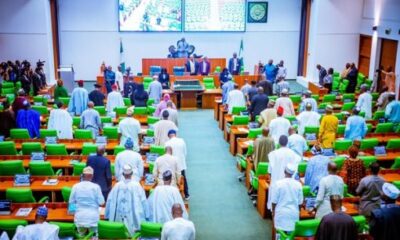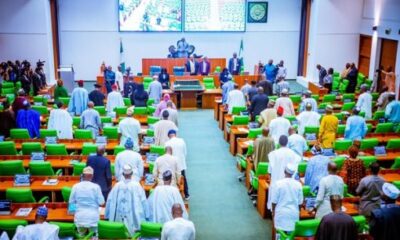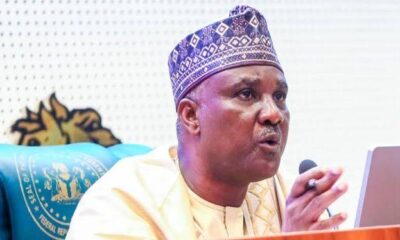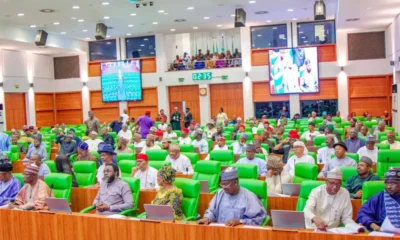Inside Nigeria
Drama as Oyetola declares Cargo Tracking Agreement faulty
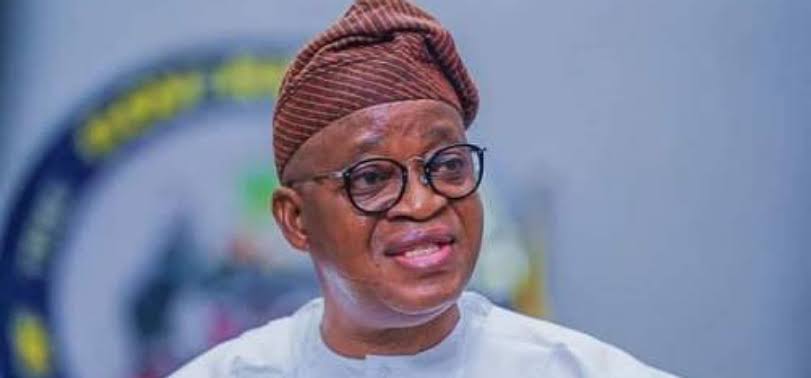
On Monday, the House of Representatives witnessed a surprising revelation when Minister of Blue and Marine Economy, Gboyega Oyetola, described a multi-billion-dollar cargo tracking agreement entered into by the Nigerian government as flawed.
This agreement, aimed at implementing the International Cargo Tracking Notes (ICTN), has been delayed, costing Nigeria an estimated $500 million per month, according to experts.
The statement arose during an investigative hearing by the House Committee on Shipping Exercises, Customs, Port and Harbour, and Maritime Safety, Education, and Administration.
The panel is examining the prolonged non-implementation of the ICTN, intended to monitor all imports, exports, and crude oil shipments.
Oyetola, represented by Director Babatunde Sule from the Ministry of Blue and Marine Economy, suggested the process approved by the Federal Executive Council (FEC) had been marred by procedural errors.
Originally, the Buhari administration had commissioned a consortium led by Antaser Nigeria Limited for the project in March 2023.
However, new officials in the Tinubu administration are reportedly pushing to replace the consortium with investors of their choice under a public-private partnership, with the involvement of the new ICRC DG, Jobson Ewaleifoh.
In July, the federal government moved forward by awarding a separate contract to procure advanced technology solutions for tracking Nigerian oil and gas cargo. Minister of State for Petroleum Heineken Lokpobiri announced the initiative, emphasizing the need for tighter monitoring of crude oil shipments.
While the ICTN’s approval by the FEC initially received a nod, the minister’s representative later asserted that the approval had been an error, sparking questions about the project’s future and the possible financial consequences of further delays.
“The process was even faulty ab initio. The process that led to this was wrong,” he said, as the lawmakers jeered at his comments.
“The process could have been better than the way it was handled,” Mr Sule added after some of his colleagues whispered to him.
Earlier, he had said, “I am aware of the contract. I am also aware that it was given to five companies. I learned that four of the companies signed an agreement, with the fifth not signing, and I think that was what stalled this whole process.”
Many lawmakers were unimpressed by the representative’s responses, with some questioning his capacity to represent the minister adequately.
“I don’t think you are capable enough to represent the minister; you don’t even have any information about the issue. The ministry is not serious. The minister did not show up, the permanent secretary did not show up, and you who are here do not have first-hand information,” Kabir Maipalace, a committee member, said.
Mr Ewaleifoh had during the hearing insisted that he was only aware of the flawed procurement process initiated by former minister of transport, Rotimi Amaechi.
Reacting to this, Frank Tietie, the director of Citizens Advocacy for Social Justice in Nigeria (CASER) reminded the DG that it was discovered that those companies ICRC were trying to procure namely Medtech Scientific Limited, Rozi International Ltd and Frabemar UK were in medical equipment and construction businesses, and the government had quickly cancelled that process midway after the unprecedented outcry from NGO’s and industry stakeholders before commencing and awarding to the Antaser Nigeria Ltd led consortium.
In its presentation, Antaser’s chairman, Emeka Obianozie, informed the committee about how his company received approval to implement the project, including approval by the Federal Executive Council.
He stated that under the current administration, the Nigerian Upstream Petroleum Regulatory Commission, NUPRC and the Nigerian Customs Service, NCS are attempting to build and implement the same service in the oil and gas sector at a greater cost.
“We informed NSC of the attempt by the Upstream Petroleum Regulatory Commission and Nigerian Customs Service to implement part of ICTN’s scope at a huge cost to the nation. We noted that these efforts and the associated complications are arising due to the delay in implementing the ICTN scheme.
“The hush move, if allowed, will amount to duplication, mediocrity, unnecessary costs, and, more importantly, abuse of the project by inadvertently compromising the transparency which is the cardinal pillar of the service scheme.”
Mr Obianozie said his company’s contract with the government remains valid, adding that the company “maintains over ninety-five per cent (95%) global network outreach for trade monitoring and cargo inspections.”
Lawmakers Decline Edun’s Intervention to Save Oyetola
At the start of the hearing, Mr Oyetola’s absence almost halted the probe by the committee.
The probe was scheduled to commence at 10am, however, by 11 am, the minister had yet to arrive. At that point, the lawmakers decided to take a one-hour recess to allow the minister to attend the session.
During this period, the Minister of Finance and Coordinating Minister of the Economy, Wale Edun, arrived at the venue.
The lawmakers asked him to leave, insisting they would only permit Mr Oyetola’s presence, an action that irked several lawmakers.
It took the intervention of some lawmakers before the minister’s representative was eventually allowed to address the committee.
In his final statement on the matter, Mr Dasuki said the committee would hold hearings with all concerned parties to address the core issues.
The committee later adjourned after hearing contributions from various participants at the hearing.




